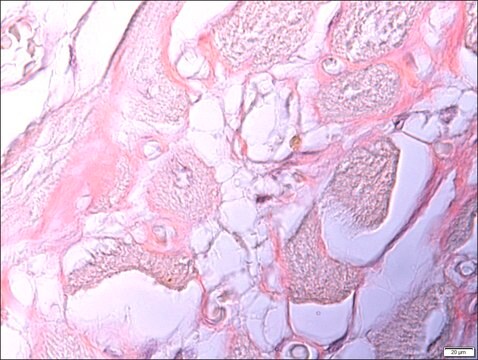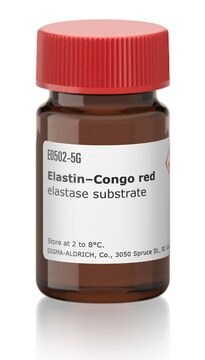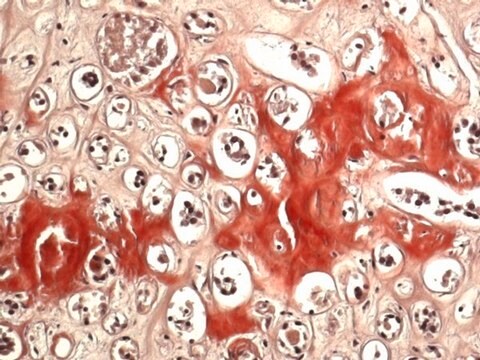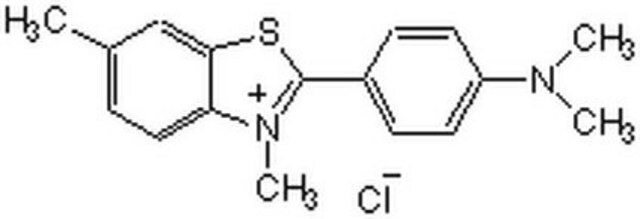C6277
Congo Red
Dye content, ≥85%, certified by the Biological Stain Commission, powder
Synonyme(s) :
Congo Red 4B, Cosmos Red, Cotton Red B, Cotton Red C, Direct Red 28, Direct Red R, Direct Red Y
About This Item
Produits recommandés
Nom du produit
Congo Red, certified by the Biological Stain Commission, BioXtra
Qualité
certified by the Biological Stain Commission
Niveau de qualité
Gamme de produits
BioXtra
Forme
powder
Composition
Dye content, ≥85%
Technique(s)
microbe id | staining: suitable
Pf
>360 °C (lit.)
Solubilité
H2O: 10 mg/mL
Application(s)
diagnostic assay manufacturing
hematology
histology
Température de stockage
room temp
Chaîne SMILES
[Na+].[Na+].Nc1c(cc(c2ccccc12)S([O-])(=O)=O)\N=N\c3ccc(cc3)-c4ccc(cc4)\N=N\c5cc(c6ccccc6c5N)S([O-])(=O)=O
InChI
1S/C32H24N6O6S2.2Na/c33-31-25-7-3-1-5-23(25)29(45(39,40)41)17-27(31)37-35-21-13-9-19(10-14-21)20-11-15-22(16-12-20)36-38-28-18-30(46(42,43)44)24-6-2-4-8-26(24)32(28)34;;/h1-18H,33-34H2,(H,39,40,41)(H,42,43,44);;/q;2*+1/p-2/b37-35+,38-36+;;
Clé InChI
IQFVPQOLBLOTPF-HKXUKFGYSA-L
Vous recherchez des produits similaires ? Visite Guide de comparaison des produits
Application
Actions biochimiques/physiologiques
Adéquation
Mention d'avertissement
Danger
Mentions de danger
Conseils de prudence
Classification des risques
Carc. 1B - Repr. 2
Code de la classe de stockage
6.1C - Combustible acute toxic Cat.3 / toxic compounds or compounds which causing chronic effects
Classe de danger pour l'eau (WGK)
WGK 3
Équipement de protection individuelle
Eyeshields, Gloves, type P3 (EN 143) respirator cartridges
Faites votre choix parmi les versions les plus récentes :
Déjà en possession de ce produit ?
Retrouvez la documentation relative aux produits que vous avez récemment achetés dans la Bibliothèque de documents.
Les clients ont également consulté
Notre équipe de scientifiques dispose d'une expérience dans tous les secteurs de la recherche, notamment en sciences de la vie, science des matériaux, synthèse chimique, chromatographie, analyse et dans de nombreux autres domaines..
Contacter notre Service technique








